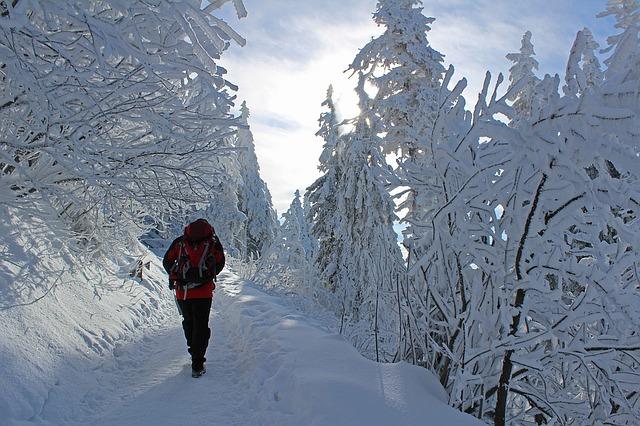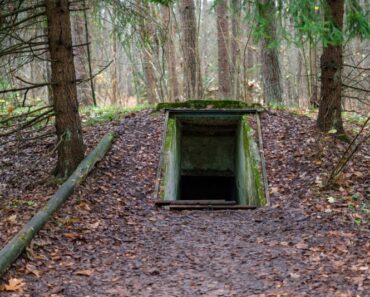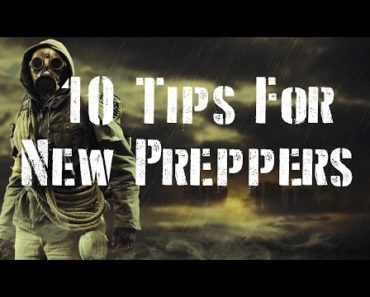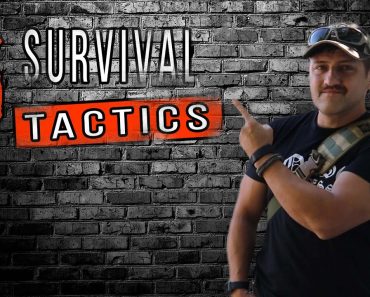Every different climate delivers a unique set of challenges in a survival scenario, and winter is no exception. If you aren’t too careful, the frigid wind and cold can immobilize you with frostbite and then kill you off with hypothermia.
In this article, we are going to look at five specific skills that you absolutely must have in order to survive when you’re stuck outdoors during winter.
1. Getting a fire going … and keeping it going
Knowing how to start a fire is an important skill to have in any survival scenario, but it’s extra important during winter. If you are ever wet and cold, a fire may be the only thing that gives you a chance of surviving. You also need a fire to dry out any damp clothing.
Unfortunately, it’s harder to build and maintain a fire during winter. The ground often is blanketed in snow or ice and the wood that is above the ground is saturated with moisture, too. On top of that, there could be high winds that put any spark you manage to create out in an instant. So how are you supposed to start a fire during winter?
Cotton Balls
The answer is to keep cotton balls that are coated in Vaseline with you at all times – especially during winter. These are highly flammable and will be a lifesaver in a winter survival situation. (They’re also inexpensive.) You’ll also need something to cause a spark, such as a ferro rod. But this is just the solution to getting a fire going. How can you keep that fire maintained?
Construct a pit into the snow that is approximately two feet deep. This is so that the walls of the pit will protect the flames from the wind. The bottom of this pit should then be covered with logs and sticks. Next, set some tinder and your Vaseline cotton balls on top of these logs.
If all of the wood that you find is already wet, then use a knife or a hatchet to cut into it and see if there’s any drier kindling that you can get from the inside. Then, set up your kindling in a pyramid. This will allow the wood to dry and then burn faster.
The technique above might save your life.
2. Building a warm-enough shelter
This is another survival skill that is important in any situation — but arguably more so in a winter scenario. During winter – unlike other seasons — you have to keep yourself warm and dry. For these reasons, you would be wise to spend more time working on your winter shelter than, say, your summer shelter.
Your shelter should be constructed in a site that is flat and on higher ground, with plenty of trees for cover from falling snow and wind. The trees also provide the natural resources you’ll need to build your winter shelter.
One of the best winter shelters to make is one that has natural cover, such as the boughs of a tree. You can dig around the trunk of the tree underneath the lowest boughs, so that the branches spread above you protect you from the snow and wind. The snow walls would then provide additional protection, and you can even set up a little place for you to make a small fire.
3. Maintaining a proper body temperature
During winter, it’s easy to get too cold – but also too hot. Wear an outer shell layer that deflects the wind and the coldness, an insulation layer that keeps your body warm, and then a final layer that sticks right to your skin. When you’re traveling through the snow with all of this clothing on you, you can easily overexert yourself. The sweat will then freeze and make you at risk for both frostbite and hypothermia.
Keep close attention to your body temperature and add and remove layers as needed. If it is snowing or raining, wear all three layers so that your shell layer can keep your inner two layers dry. But when you’re traveling out in the sun or working on building a shelter, remove one or more layers so that your body can cool down and avoid perspiration.
4. Making snow goggles
While we most commonly use sunglasses during summer conditions, the ice and snow during winter can reflect the rays of the sun back to your eyes – essentially blinding you. If you don’t have snow goggles or sunglasses with you already, then you’ll need to know how to make them on your own, out of natural resources.
The easiest snow goggles to construct are made out of birch bark. Birch bark is best for snow goggles because it can be removed from the trunk of the tree in sheets. Cut out a sheet of bark and then cut small slits in it for your eyes.
Next, cut holes into the sides of it so that it can be tied around your face. These simple DIY goggles will provide your eyes with the protection they need when the sun is out.
Emergency Back-up Power You Can Depend On
5. Building a pair of snowshoes
Snowshoes distribute your weight over a larger area so that your foot will not completely sink into the snow. If you’ve ever tried to walk through a winter forest without snowshoes, you know how exhausting and time-consuming it is. Snowshoes will save you a lot of time and energy.
If you don’t already have a pair of snowshoes with you, you’ll need to make some on your own. The simplest form of DIY snowshoes are groups of boughs that are tied together and then lashed onto the feet. More traditional snowshoes will require some time and energy to build. You’ll need to find a long, flexible stick that you can bend and then tie at the end, followed by crisscrossing the insides of the snow with more sticks, vines, and/or rope.
Should you successfully build a pair of snowshoes, it’s guaranteed you’ll be able to make it out alive much faster.



























